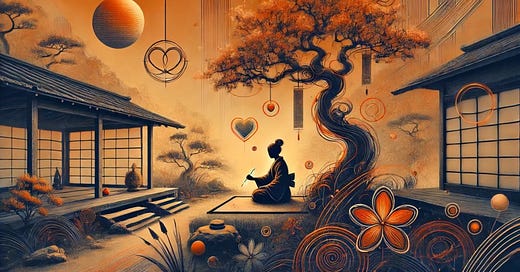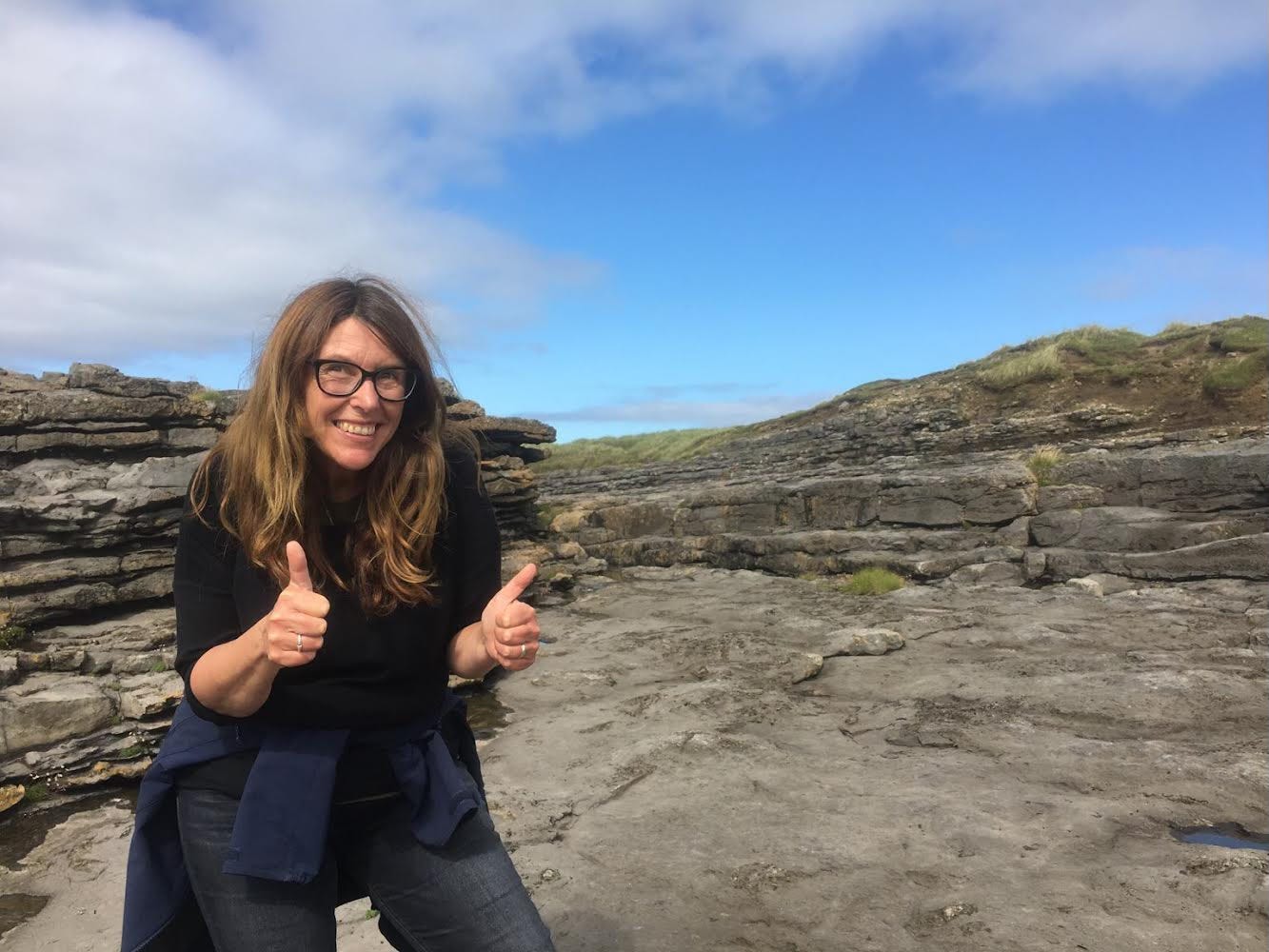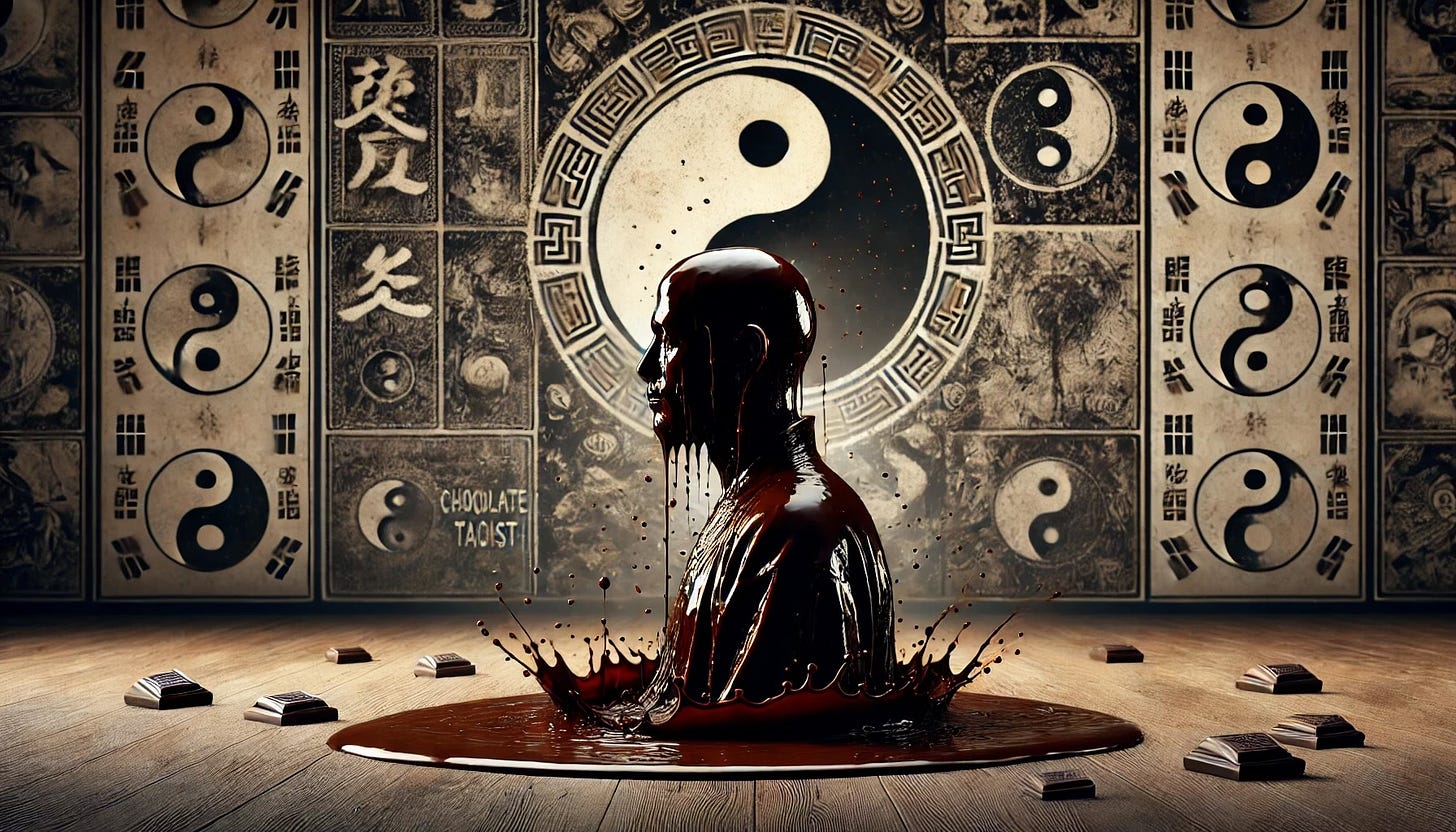In the heart of Amanda Saint's classroom, where the scent of ink mingles with the whisper of turning pages, lies a sanctuary for those who seek to unravel the deep intricacies of the human soul.
Amanda, a creative writing teacher whose essence radiates warmth and wisdom, believes in the transformative power of stories. To her, writing is not merely an art form but a profound journey into the depths of our being, a journey that holds the potential to reshape our understanding of love, peace, and unity.
Her passion for mindful living echoes the timeless principles of Eastern philosophy. She guides her students to pause and reflect, to delve into the quiet moments of life that often go unnoticed.
In her view, the practice of mindfulness—being present and fully engaged with the here and now—intersects beautifully with the act of writing. This mindful approach resonates with the Taoist concept of Ziran, or naturalness, urging her students to embrace the flow of their creative instincts without force or pretense.
Amanda’s classroom becomes a place where the raw materials of lived experiences are melted down and forged into stories that resonate with truth and authenticity.
She believes that by changing the narratives we tell ourselves about what it means to be human, we can uncover a deeper sense of connection to one another. She fosters an environment where vulnerability is celebrated, where each story penned becomes a beacon of empathy and understanding.
In a manner aligned with the Taoist principle of Wu Wei, or effortless action, Amanda encourages her students to write with ease and spontaneity, allowing their words to emerge naturally.
She teaches them to trust the process, to let their stories unfold without excessive striving or control. In this way, their writing becomes a reflection of the Tao, the underlying harmony and balance that flows through all things.
In Amanda's philosophy, the written word is a vessel for love—a means to bridge divides and heal wounds. She teaches her students that by sharing their unique perspectives, they contribute to a reservoir of human experience that is rich and diverse. Each story, a thread woven into the fabric of our shared reality, has the power to unite us in our common struggles and joys.
Amanda Saint’s teachings transcend the boundaries of the classroom. They ripple outward, touching lives and inspiring change. Through her dedication to mindful living and the craft of writing, she imparts a timeless lesson: that by embracing the full spectrum of our humanity and expressing it through stories, we can foster a world imbued with more love, peace, and unity.
In her hands, words are not just mightier than the sword; they are a tool of transformation, a beacon of hope in the quest for a more compassionate world.
Through the lens of Eastern wisdom, Amanda's work embodies the harmony and interconnectedness that we all strive to realize in our shared human journey.
You've lived in cities all your life but are now embracing locales that are more nature oriented. How do you believe this transition has influenced your writing and creative process?
AS: When I first left London in 2012 and moved to Exmoor National Park, I found it really difficult to feel at home in such a rural setting. I’d gone from having all the restaurants, theaters, museums, pubs and literary events the city had to offer, and lots of friends nearby to enjoy it all with, to being a 45-minute drive to the nearest town. And knowing nobody apart from my husband.
So I found myself with plenty of time to explore the beautiful area, which really captured my heart, despite initially being terrified of the cows and sheep I encountered when out walking! This new location seeped into my writing and in my first novel, which I was writing when we moved there, the characters go there for a holiday.
My second novel is primarily set there and humans' relationship with the natural world is a major element of the story. My novella that came out this year is set there too! In a small seaside town that is the first place we visited in the area before we moved there.
My relationship with my writing has been transformed by being away from the city. The freedom and peace of mind that a freelance, rural and more mindful life have given me, mean I have more time and headspace to dedicate to it.
I have started to think a lot more about what I’m writing before I ever write a word, whereas before I wrote a lot of short stories and flash fictions from prompts and prettied them up and sent them out. They were well-crafted and many of them made prestigious long and shortlists, but they lacked real depth. Now I write fewer stories, spend more time with them, and send them out rarely.
Having founded Retreat West in 2012 and expanded it to include Retreat West Books and WestWord literary magazine, what has been the most rewarding aspect of helping writers develop their craft and get published?
AS: There are so many. I am truly passionate about storytelling and love working with writers to dig deeper into what they are writing and why. When I was running Retreat West Books from 2018-2023, for many of the authors I worked with it was their first experience of having a book published and I feel honored to have brought their stories to the world.
I have been running a Monthly Micro competition since 2019 and one of the best moments of that was a writer getting in touch after having made the longlist and telling me he had been reading all the stories and submitting every month for years and was overjoyed to have finally made it through. Seeing the ah-ha moments in live workshops when something I share makes a story element click for a writer is also a brilliant thing.
Since launching the Mindful Writer, I have also started running A Year of Mindful Writing course and the first group started in January 2024. Seeing the connection they are making to each other, to themselves and to their craft deepen authentically as the year progresses, is wonderful. I feel truly blessed to be doing this work through all my different wordy projects.
Your work has been widely recognized, including winning the 2020 Most Innovative Publisher at the Saboteur Awards. What do you believe made Retreat West different from other publishing houses?
AS: I was willing to take risks with the books I published. It’s incredibly hard in the UK for a writer to get published with short fiction collections, especially if they are not also writing a novel, and I brought lots of short story collections to the world, as well as a fantastic, experimental flash fiction collection by F. J. Morris, which she has since republished herself after I closed the books side of things down. Do check it out as it’s amazing: This is (Not About) David Bowie.
For many years the UK publishing industry has mostly been focused on following trends and publishing lots of novels like others that were successful in that genre. So if you are writing outside that mold, it's hard to get your writing taken on. I didn’t follow those trends and instead published the novels that spoke to my heart. I have come to understand that the most important thing you can do in this life, is be true to what your heart tells you.
You and your husband practice qigong. How does this practice integrate into your daily life and writing routine, and what benefits have you found it brings to your creativity?
AS: Practicing qigong has transformed everything about my life. It has made me more focused, calmer, given me more stamina and physical and mental strength. I get a lot more done in a lot less time when I am working. In developing a daily practice, it also led me to look more deeply into Taoism and to change how I eat, work, exercise, think, and sleep.
I also started reading the Tao Te Ching and my relationship with my writing craft changed profoundly. I found my way back to doing it for the love of it, after having got all caught up in the ambitious London literary scene and forgetting what was really important about my craft. The doing of it and working to get better at it are what matters; and while I do still want people to read my stories, getting my work published by journals and publishers has stopped being a priority.
One of my favorite translations of the Tao Te Ching is by Stephen Mitchell and I am working at embodying this element of Chapter 2 in relation to my writing:
Things arise and she lets them come;
things disappear and she lets them go.
She has but doesn't possess,
acts but doesn't expect.
When her work is done, she forgets it.
That is why it lasts forever.
You have two publications, The Mindful Writer and the Tao of Storytelling that offer readers a look at the importance of one's spiritual philosophy and practice. Can you offer some thoughts on each of these?
AS: Both of these have come from my new approach to life and writing. The Mindful Writer started in 2023 as a place for me to share personal stories of my journey to becoming one and while it is still that, now I am also hoping to build a community of writers around it who want to use their writing to bring us all closer together again.
I wrote about that here. We live in scarily divisive times and I believe we have to do whatever we can to try to reconnect us all and make people remember that we are all one.
The Tao of Storytelling comes from a course that I originally wrote in 2021 where I explored eight chapters of the Tao Te Ching in relation to the world we live in today and how we can write stories that matter about it with characters that have real complexity and depth.
I loved doing it, and the feedback I got from writers who took the course over the couple of years that I ran it was that they did too, so I decided to do it for every chapter on Substack. It’s a lovely thing to do and it has also connected me with lots of other Taoist-focused writers, yourself included!
As an author of two novels and a novella-in-flash, how do you approach the different forms of storytelling, and what do you find most challenging and fulfilling about each?
AS: I wrote the two novels before I wrote the novella-in-flash, but had also been writing stand-alone flash fiction stories for many years. I realized that when writing the first drafts of my novels, a lot of the time I had been writing flash length chapters. I create really bare bones first drafts to find the story and then layer in the depth in later drafts. Just like I do in flash fiction stories, which also go through many drafts despite being so short.
So when writing the novella-in-flash, I used many of the same tools and approaches to character development and story structure that I use when writing novels and then instead of layering in the nuance and depth by expanding, like I do in novel chapters, I worked to create it through precision, imagery and metaphor while keeping each chapter at under one thousand words.
I thought it would be quicker than writing a novel but from writing the first chapter to it being published was four years! Admittedly, a lot went on in those four years — I had twelve bereavements, we went into lockdown and the online community I had started at Retreat West in January 2020 went from having about 20 members to almost 200 in a matter of weeks.
Recently, I started writing a new novel (or maybe it’s a novella we’ll see how it goes!) and I am just letting the story unfold. I haven’t created an outline or plan and am letting the characters lead the way each time I sit down to write. I’m much more relaxed about it all now and just love the writing and immersing myself in the world of these characters that come to me. Sorry I’m not sure if I have really answered your question properly there!
You mentioned that while currently living in the U.K., you’ve been reconnecting to your Irish roots. How does your heritage influence your writing, and what aspects of Irish culture do you find most inspiring?
AS: I have a very complicated family background and knew nothing about my Irish roots until recently. The Irish side of my family is from my father, who left my mother before I was born and I only met him once when I was in my early thirties. In order to get an Irish passport and be able to go and live in the EU, I have traced my Irish grandparents using the Ancestry website.
It has been an amazing experience discovering the past of these people I am related to but never knew. My grandmother was born in Tralee in County Kerry and when my husband and I lived in Ireland, we went there on holiday and walked down the street where she lived. But I didn’t know any of this then.
Since discovering I have Irish roots, I have wondered if this has unconsciously influenced my passion for writing. And my love of reading Irish authors — anyone who has ever taken a short story course with me will tell you that a lot of Irish writers appear on the reading lists! I love the way so many Irish writers take an everyday situation and make it compelling while bringing such insight into the many facets of this human experience, often with great humor alongside the pain and suffering.
When I lived there, what I loved most about Irish culture was its openness and how welcoming people are. That everywhere you went you would get into conversations with people, that always went deeper than small talk, and that almost always started with them telling you a story.
Unleash the Syrup: Become a Member of The Chocolate Taoist™ Tribe
Since 2022, The Chocolate Taoist has delivered uncommon nomadic wisdom to help you live a more interconnected and expansive life.
If this publication has been a source of wisdom for you then please consider helping me sustain it by becoming a monthly or annual contributor.
For just $5.00/month or $50.00/year, you’ll have the opportunity to share your lived experiences with fellow nomads, fueling fiery discussions that provoke, inspire, and challenge you to think differently.
So I hope you will take the plunge today and contribute to my mission of helping human travelers on this life journey.
Onward and Forward
Diamond Michael Scott aka The Chocolate Taoist









Hi Sandra, that’s great to hear! 🙏💙
I’m one of the lucky writers you published, Amanda! Thank you so much. I’m alway grateful to you x